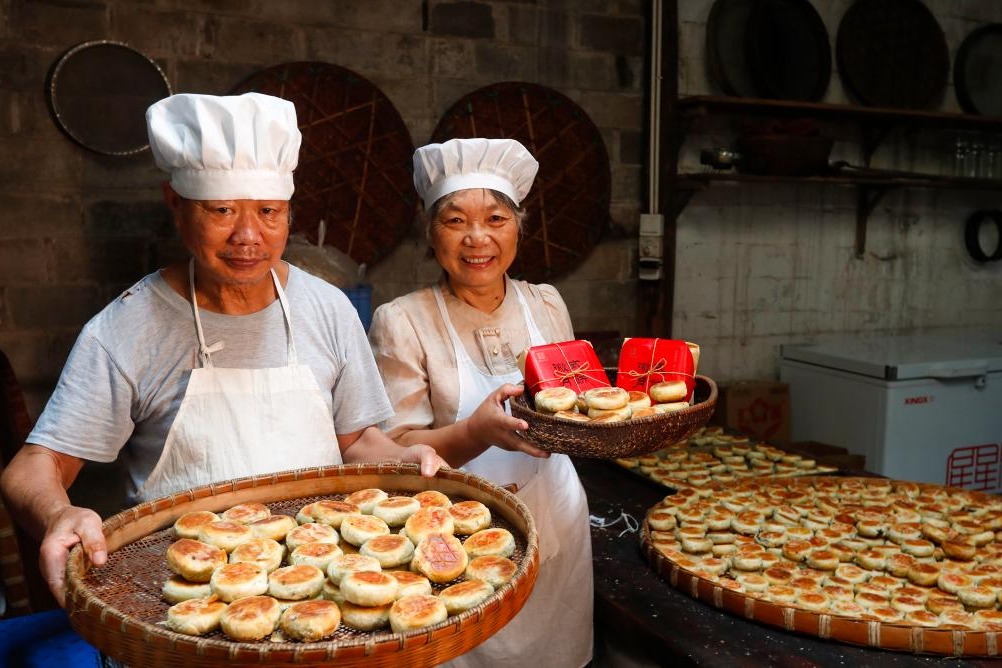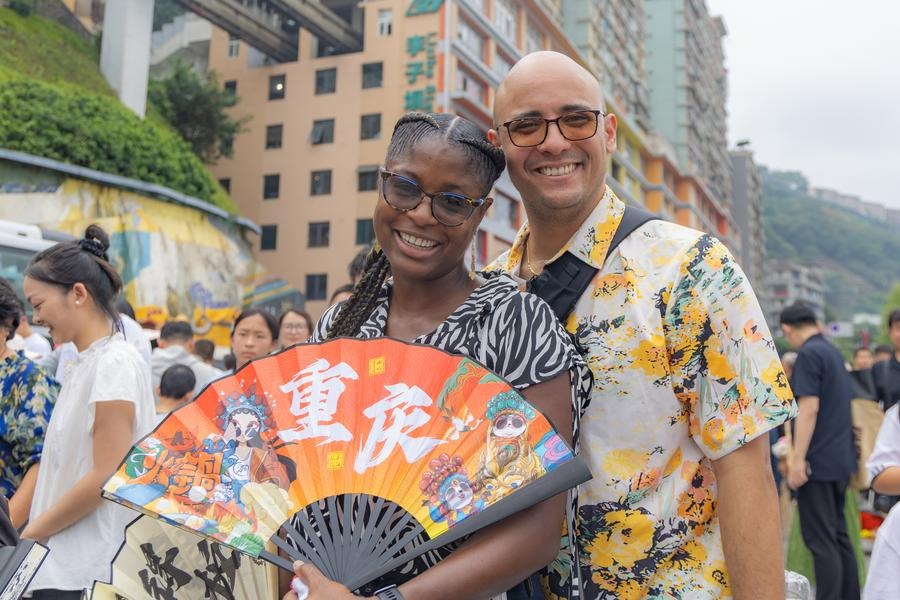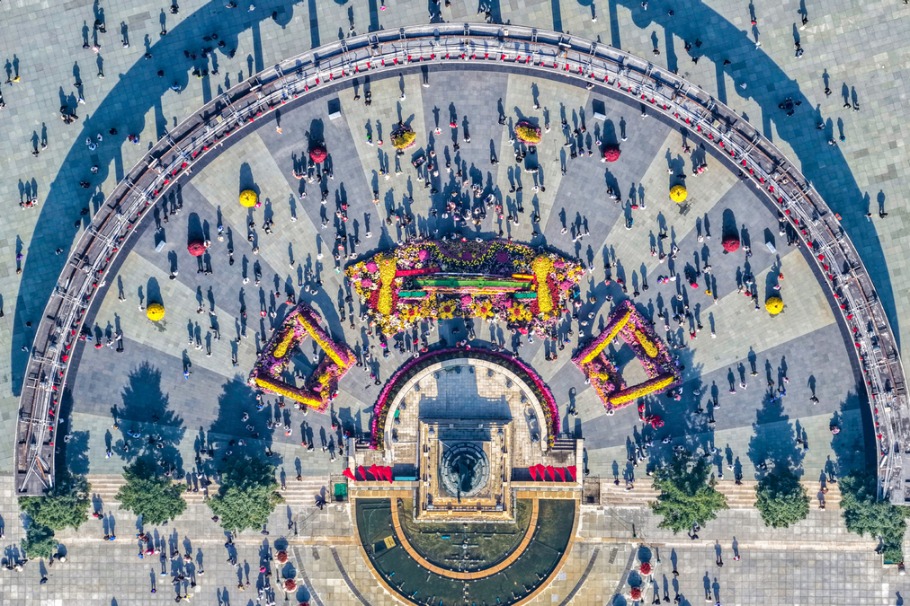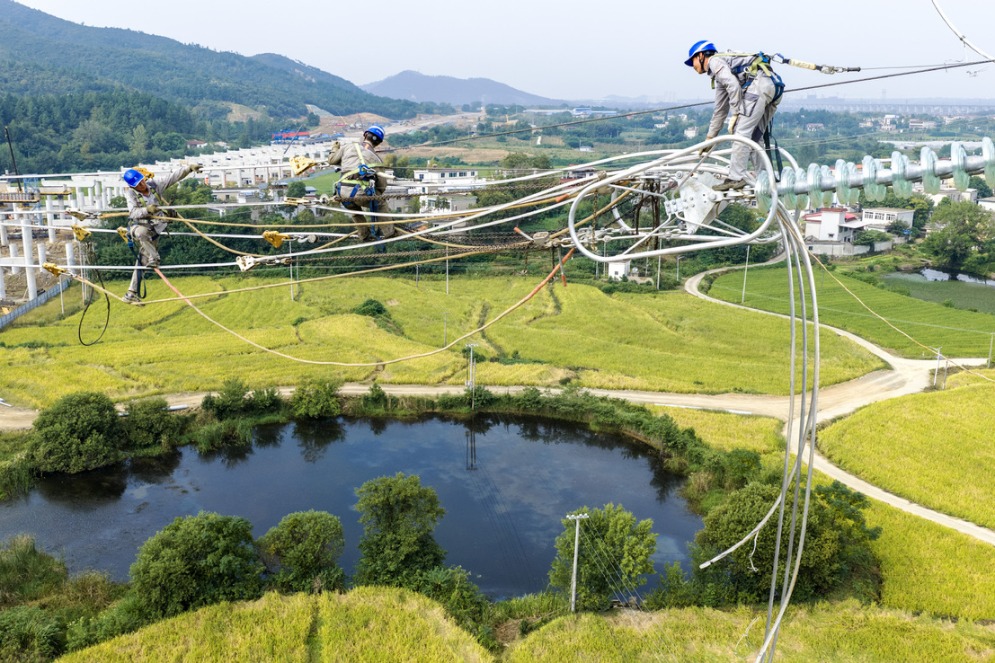Residents of Fuzhou, Taiwan unite as 'one family'


The shared identity and family ties between people on both sides of the Taiwan Strait were the main theme of a Mid-Autumn Festival gathering on Saturday in Fuzhou, the capital of Fujian province, the closest province on the Chinese mainland to Taiwan. The two sides are separated by a narrow strait.
"Both sides of the Taiwan Strait are Chinese and part of one family," said Song Tao, director of the Taiwan Affairs Office of the State Council, emphasizing the need to oppose "Taiwan independence" and external interference to safeguard the homeland.
The event — jointly hosted by Fuzhou and Matsu, a group of small islands administered by Taiwan just off the coast of the capital city — brought together over 250 participants, including Lien Sheng-wen, vice-chairman of the Chinese Kuomintang party, and Taiwan compatriots living in Fujian.
With exhibits showcasing Mid-Autumn lanterns, Matsu cultural tourism and traditional folk customs, alongside displays set up by Taiwan enterprises, the event promoted mainland tourism to Matsu and showcased the achievements of cross-Strait integration development in Fuzhou.
A highlight of the evening was a drone display featuring 500 drones forming messages, including "One Family Across the Strait", which was met with enthusiastic applause from attendees.
Song's remarks came during a tea party for cross-Strait compatriots, in which he noted the significance of the 80th anniversaries of the victory in the Chinese People's War of Resistance Against Japanese Aggression (1931-45), as well as Taiwan's retrocession. He also highlighted the V-Day parade at Tian'anmen Square in Beijing on Sept 3, which stirred national pride among viewers, including many in Taiwan.
Song called for increased cross-Strait exchanges and cooperation to deepen integration and enhance the well-being of the "family", as well as efforts toward peaceful development and national reunification.
Lien said the Mid-Autumn Festival symbolizes reunion, completeness and harmony. He affirmed that the KMT will continue to promote cross-Strait exchanges, peaceful development based on the 1992 Consensus, and opposition to "Taiwan independence".
Participating Taiwan compatriots said the continuous advancement of cross-Strait integrated development has made studying, working and living on the mainland increasingly convenient for them.
Wong Chen-hua, a former primary schoolteacher from Matsu, attended the celebration event in Fuzhou with other Matsu locals, where they performed traditional Matsu songs and dances. He also promoted Matsu's specialty liquor and tourist sites, hoping that more compatriots would visit Matsu.
This year, there has been an increase in mainland tourists visiting Matsu, Wong said, adding that strengthening mutual understanding is essential to eliminating barriers, as both sides share common roots.
"I have many relatives on the mainland, and because of the convenience, I often bring my children to travel extensively across it," he said. "I hope the ties between compatriots will grow even closer."
Su Yu-sheng, who started teaching at the Ningde Normal University's College of Medical Science in Fujian six years ago after moving from Taiwan, said that during the Mid-Autumn Festival, he felt a deep longing for his family as he did not return to Taiwan. Participating in a cross-Strait Mid-Autumn Festival event for the first time, he found it interesting and heartwarming and made some new friends, he said.
Contact the writers at zhangyi1@chinadaily.com.cn
- Strong typhoon triggers safety measures in south
- 5 dead after entering abandoned mine in East China
- Andersson seizes victory in Shanghai F1H2O showdown
- Red alert as Typhoon Matmo makes landfall in South China
- New reception hall aims to transform Guangzhou into international trade hub
- Typhoon Matmo to make landfall on Sunday





































